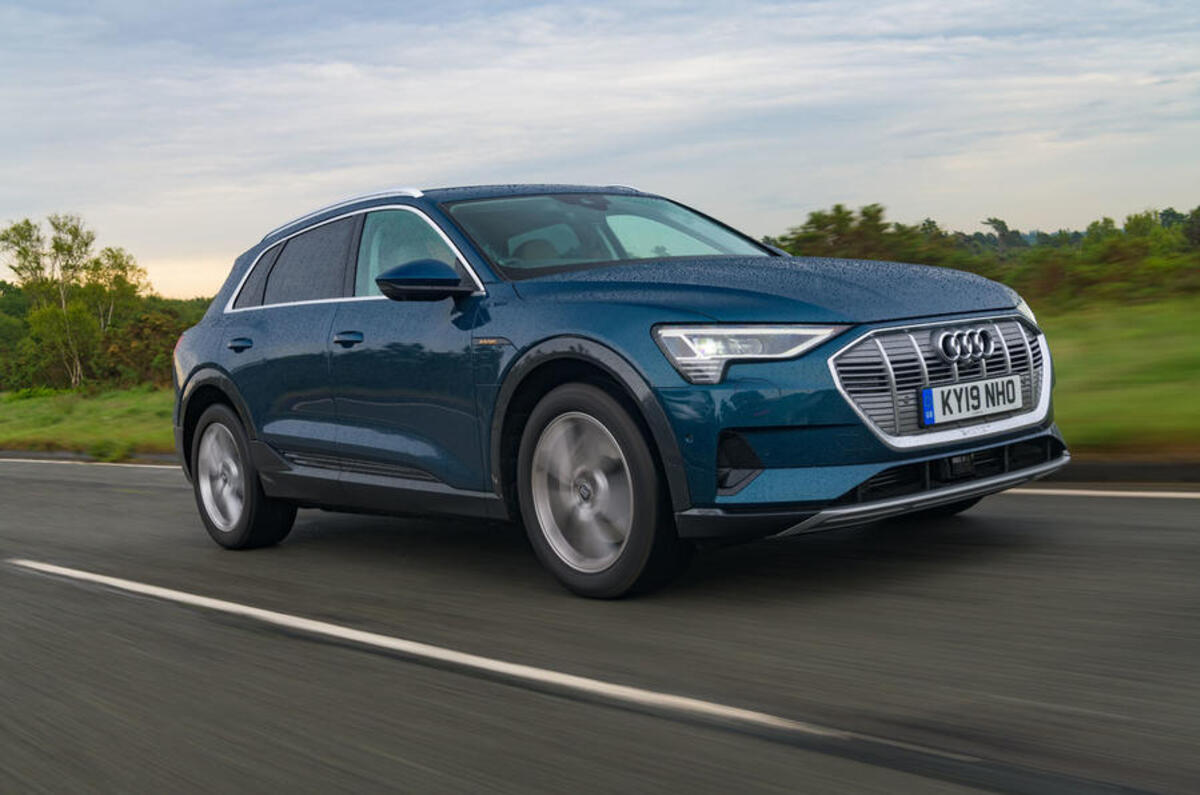Some Audi Audi E-tron models have gained a longer range after the installation of an over-the-air update.
The revised software was first introduced in 2019 with the launch of the E-tron Sportback, but the update will now be rolled out to other models produced for the 2019 and 2020 model years.
Audi says the E-tron 55 quattro has gained a range extension of up to 12 miles (20km) - an increase of 5% - meaning the model is now capable of traveling 274 miles on a single charge.
The update enables the model’s battery to deliver higher net usable power, meaning the car can now benefit from 86kWh of its 95kWh battery when driving.
Audi also claims the update optimises the control of the electric motor at the front of the car, disconnecting it in situations where the car requires less power.
The cooling system – which, Audi says is the basis for fast charging, long battery life and consistent EV driving performance – has also been improved by lowering volume flow rates in the coolant circuit.
Some 34,000 E-tron 55 quattro models are eligible for the update, which can be installed for free at Audi service centres.




Join the debate
Add your comment
It would be better if they achieved more range by increasing efficiency and reducing weight rather than eating into safety margins. I'm sure that if the owner frequently went from full charge to virually zero it would impact on battery longevity.
I think there is too much chasing of ridiculous and meaningless 0-60mph times with current EV's, leading to multiple higher power, heavier motors which drain batteries too quickly. I blame Tesla for starting this. 100bhp per tonne in any car is more than sufficient for road use and with the instantaneous torque of electric motors gives good acceleration feel. A power to weight like this would require smaller/lighter battery and motor requirements to the benefit of range and handling. It's time to grow up, stop chasing 3 second 0-60 times and give the market what it needs rather than what it thinks it needs.
Even the Mini electric has to perform like a Cooper S rather than a normal Cooper. Why? It probably costs around a third of its potential range, supplying a higher power, heavier motor than necessary. When battery tech improves, then it might be possible to provide higher power to weight, but at the moment most buyers would prefer lighter cars and longer range I suspect.
Still a 2.5 tonne brick that is pretty much the least efficient EV on sale, but yes, good for them. I wonder if anyone will achieve that magnificent 275 mile range from their 95! yes, 95kWh battery? A model 3 would achieve a WLTP of about 500 miles with the same size of battery.
Nobody will achieve 275 miles of range, but likewise nobody will achieve 500 miles in a model 3. In relaity a model 3 will deliver around 300 miles and the E-tron 240 or so. Neither are enticing enough as yet.